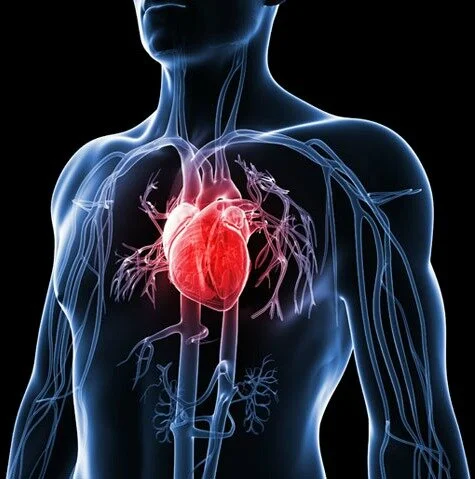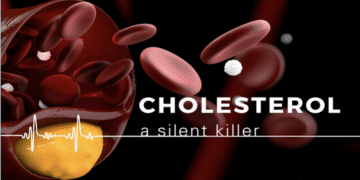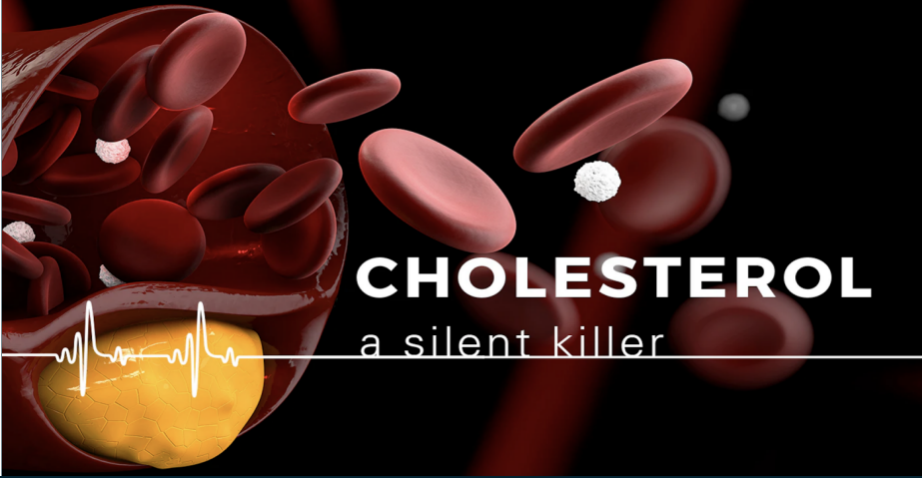In today’s fast-paced world, where convenience often takes priority over health, cholesterol has become one of the most overlooked yet critical aspects of our well-being. Cholesterol, a waxy substance found in your blood, plays a vital role in building healthy cells, producing hormones, and aiding digestion. However, too much of it can silently damage your body over time, leading to serious health complications. Understanding how to maintain a healthy cholesterol balance can significantly improve your quality of life, energy levels, and long-term wellness.
Cholesterol itself is not inherently bad; it becomes harmful when it exists in excess. The body naturally produces all the cholesterol it needs in the liver, but unhealthy eating habits, lack of exercise, and stress often cause levels to rise. The main concern lies in the balance between LDL (low-density lipoprotein) and HDL (high-density lipoprotein). LDL is often labeled as “bad cholesterol” because it contributes to the buildup of fatty deposits in your arteries, while HDL is “good cholesterol” because it helps remove these deposits. When LDL levels become too high, and HDL too low, it creates a dangerous imbalance that can clog arteries and lead to life-threatening conditions such as heart attacks and strokes.
High cholesterol doesn’t produce symptoms at first, which is what makes it so dangerous. You may feel perfectly fine while your arteries gradually narrow, reducing blood flow and oxygen supply to the heart and brain. Over time, this can lead to a condition known as atherosclerosis, where plaque buildup hardens and restricts arterial flexibility. The effects are not limited to heart health; high cholesterol can impact every part of your life—from physical stamina to mental clarity. Reduced circulation affects energy levels, muscle performance, and even cognitive function. People with high cholesterol often experience fatigue, slower metabolism, and difficulty maintaining a healthy weight despite diet efforts.
Lifestyle plays a crucial role in determining your cholesterol levels. The foods we eat, our daily habits, and how we handle stress all contribute to how cholesterol behaves in our body. Diets rich in saturated and trans fats, found in fried foods, baked goods, processed meats, and dairy, raise LDL cholesterol. On the other hand, foods rich in omega-3 fatty acids, soluble fiber, and unsaturated fats can improve HDL levels and help flush excess cholesterol from the body. Making small dietary changes—like choosing olive oil instead of butter, eating more fish instead of red meat, and adding oats, nuts, and fruits—can bring a significant difference in cholesterol management.

Exercise is another powerful way to control cholesterol. Regular physical activity helps raise HDL levels while lowering LDL and triglycerides. You don’t need a gym membership to start; even a brisk 30-minute walk five times a week can enhance cardiovascular health. Activities such as swimming, cycling, yoga, and dancing not only burn calories but also improve blood circulation, helping your body process fats more efficiently. Exercise also plays a key role in maintaining a healthy weight, which directly affects cholesterol levels. Excess body fat, particularly around the abdomen, increases LDL and lowers HDL, creating the perfect storm for heart problems.
Stress management is equally important. Chronic stress triggers the release of cortisol and adrenaline, which can raise cholesterol and blood pressure. Many people cope with stress by eating comfort foods, smoking, or drinking alcohol—habits that only worsen cholesterol levels. Mindful practices like meditation, deep breathing, journaling, or simply spending time in nature can reduce stress hormones and improve overall heart health. Getting enough quality sleep also supports cholesterol regulation by balancing hormones that control appetite and metabolism.
The effects of cholesterol extend beyond just physical health—they influence your entire lifestyle. High cholesterol can reduce your endurance and productivity, making it harder to keep up with daily responsibilities. It can also affect emotional health, as people with high cholesterol often experience mood swings or anxiety due to poor circulation and reduced oxygen supply to the brain. Over time, this can create a cycle of fatigue and stress that worsens cholesterol further. On the other hand, maintaining optimal cholesterol levels brings vitality, sharper focus, and emotional balance. You feel lighter, more energetic, and more confident in your daily life.
Reducing cholesterol is not just about cutting out fats; it’s about creating a balanced lifestyle. Start by being mindful of what you eat. Read labels carefully and avoid foods with hydrogenated oils. Incorporate more plant-based meals into your diet. Vegetables, whole grains, lentils, and fruits contain antioxidants that help reduce inflammation in blood vessels. Drink plenty of water throughout the day to aid metabolism and support the liver in breaking down excess fat.

Quit smoking if you haven’t already. Smoking lowers HDL and damages blood vessel walls, accelerating the buildup of plaque. Reducing or eliminating alcohol consumption also makes a big difference, as alcohol raises triglyceride levels and can lead to fatty liver disease. If you find it difficult to quit certain habits, replace them with positive ones—swap evening drinks for herbal tea, or smoking breaks for short walks. The small changes you make daily create a lasting impact on your cholesterol levels and overall well-being.Routine checkups are essential. Because high cholesterol doesn’t show symptoms, regular blood tests help you track progress and identify risks early. A lipid profile test provides insight into your total cholesterol, LDL, HDL, and triglycerides. Knowing these numbers empowers you to make informed decisions about your lifestyle. Aim to have your cholesterol checked every 6 to 12 months, especially if you have a family history of heart disease, diabetes, or obesity.
It’s also important to understand how cholesterol interacts with other factors like age, genetics, and hormones. As you grow older, your body’s metabolism slows down, making it easier for cholesterol to build up. Women after menopause often experience higher LDL levels due to hormonal changes. While you can’t change your genetics or age, you can control how you live. Making conscious choices in your 30s and 40s can prevent major health problems later in life.
Incorporating natural remedies can further support cholesterol reduction. Garlic, green tea, flaxseeds, and turmeric are known for their cholesterol-lowering properties. These foods help prevent oxidation of LDL cholesterol, which is a major cause of plaque formation. However, natural remedies should complement, not replace, medical advice. Always consult your healthcare provider before starting any supplements.
Medication may be necessary in some cases, especially if lifestyle changes alone are not enough. Statins are commonly prescribed to reduce LDL cholesterol and lower the risk of heart attacks. However, medication works best when combined with a healthy lifestyle. Relying solely on pills without addressing diet and exercise can limit their effectiveness. The goal is to make health a lifelong commitment rather than a temporary fix.
When you start living a heart-healthy lifestyle, the results are visible not just in numbers but in how you feel. You’ll notice improved energy levels, better digestion, glowing skin, and enhanced concentration. Your body will thank you with more stamina and resilience against stress. Maintaining healthy cholesterol becomes a way of life rather than a restriction. It’s about balance, not deprivation—finding joy in nourishing your body rather than punishing it.
Cholesterol management is one of the most powerful ways to take control of your health and lifestyle. High cholesterol is a silent threat that can gradually deteriorate your quality of life without warning. But with mindful eating, regular exercise, stress management, and preventive care, you can reverse its effects and lead a vibrant, fulfilling life. Health is not built overnight—it’s shaped by daily choices. Every step you take toward reducing cholesterol is a step toward a longer, stronger, and happier life.
















